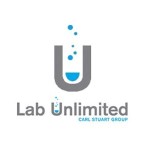Wash Bottles
Wash bottles are squeeze bottles with a nozzle which are used to clean and rinse out laboratory glassware such as test tubes and round bottom flasks. They are usually sealed with a screw-top lid. Hand pressure is applied to the bottle so that the liquid is forced out of the bottle into a narrow stream. They are made of polyethylene, which is a flexible, solvent-resistant petroleum-based plastic and contain internal dip tubes which means they are ideal for upright use. Wash bottles are filled with a common laboratory solvent or reagent. One of these is deionised water which is purified through a mechanical process to remove impurities. Most of the mineral ions, such as sodium, calcium, iron and copper, are removed. Other bottles contain detergent solutions, which are similar to soap but more soluble in water and with foaming agents. Rinse solvents like acetone, isopropanol or ethanol might be used. The two former are colourless compounds whilst ethanol is the principle type of alcohol. Sodium hypo-chlorite, also known as bleach, is another commonly used disinfecting agent. Wash bottles are crucial for any laboratory where hygienic conditions mean there is less chance of cross contamination and results of procedures adversely affected.
-
Lab Unlimited UK
View company profileThe Carl Stuart Group was founded in 1984 by Stuart and Gillian Smith. From a small beginning our business has grown to encompass many services and products, covering different market sectors and geographical regions. The focus of our business, however, remains the same. We are a customer orientated company and strive to meet and exceed your expectations in everything we do.
As our portfolio grew we decided to present and promote our product and technical service offerings under distinct brands. The Laboratory instrumentation, consumables and technical & integration services are promoted under Lab Unlimited.
The Lab Unlimited product portfolio offers laboratory/analytical products from more than four hundred leading manufacturers. A substantial part of this offering is published on this very site. We also produce a printed catalogue that can be requested by emailing us.

